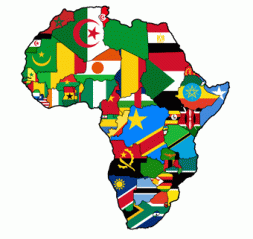 Stephen Chacha is an independent development consultant, founder of Africa Philanthropic Foundation (member of Together 2030), a secretariat member of the Africa CSOs Working Group, and a Regional Focal Point for UNEP’s 10 Years Framework Programme on Sustainable Consumption and Production. Contacts: stephen@agenda2030africa.org; Twitter: @Stephenchacha
Stephen Chacha is an independent development consultant, founder of Africa Philanthropic Foundation (member of Together 2030), a secretariat member of the Africa CSOs Working Group, and a Regional Focal Point for UNEP’s 10 Years Framework Programme on Sustainable Consumption and Production. Contacts: stephen@agenda2030africa.org; Twitter: @Stephenchacha
This is the third post of a series from Stephen Chacha on the implementation of Agenda 2030 in Africa
African countries have approached the domestication and implementation of the Sustainable Development Goals differently and are in different stages of domestication and implementation.
South Africa has a track record in implementing sustainable development. The country started with a National Framework on Sustainable Development (NFSD) in 2008, and then moved to National Strategy for Sustainable Development and Action Plan 1 (NSSD 1) between 2011 and 2014, and now implementing the second national Strategy for Sustainable Development.
In efforts to support country-level implementation of the 2030 Agenda for Sustainable Development, UN-DESA’s Division for Sustainable Development in collaboration with the United Nations Institute for Training and Research (UNITAR) offer direct capacity building assistance to 9 pilot countries including 3 countries from Africa (Ethiopia, Togo, and Uganda).
UNDP, through its pilot for mainstreaming of the 2030 Agenda is implementing pilots in eight (8) African countries (Somalia, Morocco, Algeria, DRC, Uganda, Rwanda, Botswana, and Cabo Verde), through mainstreaming, acceleration, and policy support (MAPS) approach.
In Uganda SDG consultations coincided and was aligned with the consultations on the country’s vision 2040. As a result, 76% of SDGs’ targets are mainstreamed in the National Development Plan (NDPII). Also more than 80% of the targets have been mainstreamed in UNDAF (2016-2020).
In Botswana SDGs have been embedded in national planning frameworks, vision 2036 and the National Development Plan (NDP11). SDGs mainstreaming in Botswana has gone down to the level of districts across 16 districts under the dual leadership of the ministries of finance and development planning, and local government and rural development.
On 26th January 2016, Liberia launched a National Agenda 2030 for Sustainable Development. The national agenda sets stage for the domestication and implementation of Agenda 2030 in Liberia for the next 15 years. It brings together all actors including the three branches of the government, the private sector, the media, civil society organizations, development partners, religious and traditional leaders, youth and women organizations, workers unions, and the disabled. The national agenda 2030 was launched by H.E. Ellen Sirleaf, President of Liberia, and was done in collaboration with the United Nations Sustainable Development Solutions Network (SDSN), and the UN country team in Liberia.
Similar processes to align Sustainable Development Goals with national development plans are underway in Tanzania, Kenya, Cameroon and a number of other African countries.
One key lesson from the implementation of the MDGs in Africa was the exclusion of the local government authorities in the implementation of the MDGs. Deliberate efforts are taken by African countries to ensure that local government authorities play an important role in the implementation of the SDGs and move the SDGs closer to the people.
The role of parliaments in providing oversight on the implementation of SDGs at national level is being prioritized by a number of African countries. This involves establishment of Sustainable Development oversight committees and/or embedding sustainable development in existing parliament oversight committees.
The challenge of institutional frameworks for sustainable development at national level is still pertinent in many African countries. Lack of Sustainable Development Commissions and National Sustainable Development Strategies has led to Sustainable Development matters to continue to be housed under one ministry and therefore making integration of the three dimensions of sustainable development challenging.
Supportive institutional frameworks, policy framework, partnerships and multi-stakeholders participation are the corner stone for the successful and effective implementation of these global agreements, and the realization of the transformations sought.
As of February 24 2016, 21 countries have already volunteered for review during this year’s High Level Political Forum (HLPF) session in July 2016, and out of them four (5) countries are from Africa (Madagascar, Morocco, Sierra Leone, Togo and Uganda). This is a testimony of individual countries’ commitment and efforts to implement and realize the 2030 Agenda for Sustainable Development.


Do you have more information on the DRC with respect to the implementation of the SDGs and
LikeLike